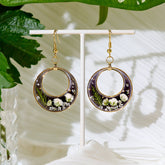Drinking Grandma: Is Alcohol Safe for Seniors?
Is that nightly glass of red wine doing your grandma more harm than good? The answer isn’t simple. Wine, especially red, has been praised for potential health benefits like protecting the heart and boosting brain function. But for older adults, it’s complicated. Aging bodies handle alcohol differently, and what’s harmless for some could be risky for others. Let’s explore the latest research—like a 2022 review in *Frontiers in Nutrition* on cognitive health and a 2024 study in *The New York Times* on cancer risks—to see if wine is a friend or foe for grandma’s health. We’ll also cover what to do if she loves her wine a bit too much.
The Potential Benefits: Could Wine Actually Help?
You’ve probably heard that a glass of red wine might be good for the heart, and some studies suggest there’s truth to that—especially for older adults. Here’s what the research highlights:
· Brain Health: A 2022 review published in *Frontiers in Nutrition* found that older adults who drank moderate amounts of wine had a 28% lower risk of cognitive decline compared to non-drinkers. Antioxidants in wine, like resveratrol, might help protect the brain from diseases like Alzheimer’s.
· Heart Health: A 2022 study in *Nutrients* linked moderate wine consumption to a reduced risk of heart disease and heart-related deaths. Red wine’s compounds could improve cholesterol levels and lower blood pressure.
· Other Perks: The antioxidants in wine might also reduce inflammation and support gut health, both of which are crucial as we age, according to a 2018 review in *Nutrients*.
These benefits seem most likely when wine is enjoyed in small amounts—think one glass a day, ideally paired with a healthy diet like the Mediterranean one. So, for some grandmas, that nightly sip might indeed offer a little boost.
The Risks: Why Wine Might Not Be So Great for Grandma
Before you toast to grandma’s health, let’s consider the flip side. Aging changes how the body processes alcohol, and for older adults, even a little can have outsized effects—sometimes negative ones. Here are the key risks:
· Increased Sensitivity: As we age, our bodies have less water and muscle, meaning alcohol lingers longer and hits harder. A 2000 article in *American Family Physician* noted that this increases risks like dizziness, dehydration, and falls—a major concern for seniors.
· Medication Interactions: Many grandmas take medications for conditions like high blood pressure or diabetes. Alcohol can interfere with these drugs, reducing their effectiveness or causing dangerous side effects, as warned by the University of Rochester Medical Center.
· Worsening Health Conditions: If grandma has liver disease, diabetes, or high blood pressure, alcohol can aggravate these issues. A 2024 study covered by *Medical News Today* linked even low-risk drinking to higher death risk in older adults with health issues.
· Cancer Risks & Heart Benefits Debated: A 2024 study in *The New York Times* found any alcohol consumption increases cancer risk, with light drinking linked to higher cancer mortality. Additionally, a 2022 study from Massachusetts General Hospital suggested that supposed heart benefits may be due to healthier lifestyles among light drinkers, not alcohol itself.
For some grandmas, these risks might outweigh any potential perks, especially if their health isn’t picture-perfect.
So, Should Grandma Drink Wine?
It depends on her unique situation—her health, habits, and doctor’s advice. Here’s the general guidance:
· Moderation is Key: For healthy older women, experts like the National Institute on Alcohol Abuse and Alcoholism (NIAAA) suggest up to one small glass of wine a day (about 5 ounces) is likely safe. But “moderation” varies based on individual factors like size, age, and health status.
· Consult Her Doctor: If grandma has health conditions or takes medications, a doctor’s input is essential. Some conditions make any alcohol off-limits.
· Look for Red Flags: If she’s drinking more than recommended or showing signs like unsteady balance, memory slips, or unusual fatigue, it might be time to reassess her wine habit.
There’s no one-size-fits-all answer. Wine might be fine for some grandmas but risky for others.
What If Grandma Overindulges? How to Help
If her wine habit raises concerns, approach the conversation with empathy:
1. Start Gently: “I love that you enjoy wine, but I want to make sure it’s not affecting your health.” Focus on care, not criticism.
2. Suggest Alternatives: Non-alcoholic wines, flavored seltzers, or herbal teas can preserve the ritual without risks.
3. Create New Routines: Encourage activities like puzzles, walks, or family calls to shift focus away from drinking.
4. Seek Support: If loneliness or anxiety drives her drinking, consider therapy or social groups to address root causes.
The Bottom Line: Wine Isn’t a Miracle Cure—or a Villain
For some seniors, a glass of wine may complement a healthy lifestyle. For others, the risks are too steep. Stay informed, observe her habits, and involve her doctor in decisions.
We all want grandma to thrive in her golden years. So if she savors her nightly pour, ensure it’s truly serving her—and maybe keep an eye on the karaoke machine after that second glass.
Quick Tips for Wine-Loving Grandmas
· Limit to one small glass daily (5 oz max).
· Always pair with food to slow alcohol absorption.
· Hydrate with water between sips.
· Avoid alcohol if taking sedatives, painkillers, or blood thinners.
· Regularly reassess with her healthcare provider.
Wine’s role in senior health is nuanced. With mindful choices, grandma can toast to her health—safely.
Snag her this quirky “Drinking Grandma” pillow as a gentle reminder to sip safely!























